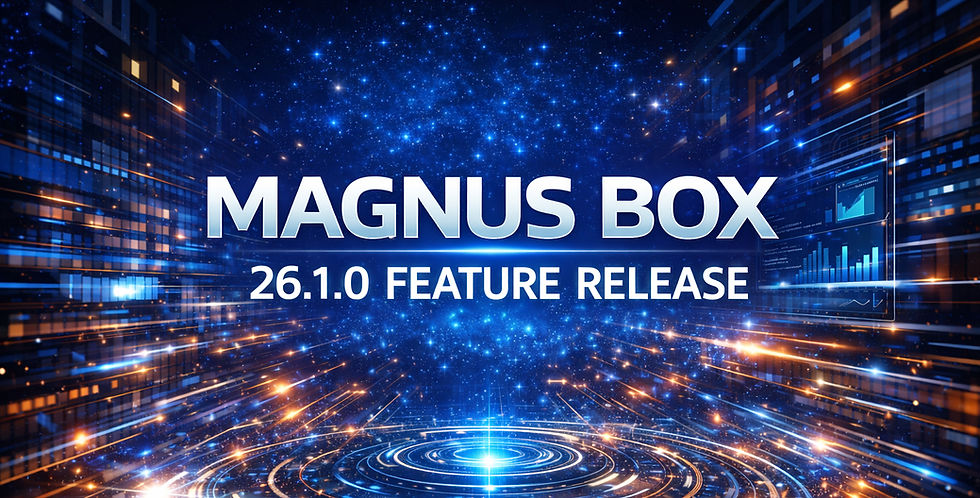Secure Your Data with Reliable Backup Solutions
- Mike Slodowski
- Oct 6, 2025
- 3 min read
Data loss can happen to anyone. Whether it is due to hardware failure, accidental deletion, or cyberattacks, losing important files is frustrating and costly. I have learned that having a reliable data backup system is essential to protect your information and maintain peace of mind. In this post, I will share practical advice on securing your data with dependable backup methods.
Why Reliable Data Backup Matters
Backing up data is not just a precaution - it is a necessity. Without a reliable backup, you risk losing years of work, personal memories, or critical business information. I have seen how quickly a hard drive failure can disrupt daily operations or personal projects. Reliable data backup ensures you can restore your files quickly and continue without major setbacks.
A good backup system should be:
Consistent: Backups happen regularly without fail.
Secure: Data is protected from unauthorized access.
Accessible: You can retrieve files easily when needed.
Redundant: Multiple copies exist in different locations.
By meeting these criteria, you reduce the chance of permanent data loss. It also helps you recover from ransomware attacks or natural disasters.

How to Choose a Reliable Data Backup Method
There are several ways to back up data, each with pros and cons. I recommend evaluating your needs and resources before deciding. Here are common backup methods:
External Hard Drives: Easy to use and affordable. Keep the drive disconnected when not backing up to avoid malware infection.
Cloud Storage: Offers offsite backup and automatic syncing. Choose providers with strong encryption and privacy policies.
Network Attached Storage (NAS): A local server that stores backups accessible over your home or office network.
USB Flash Drives: Portable but less reliable for long-term storage.
Backup Software: Automates the backup process and can manage multiple backup destinations.
For most people, combining local and cloud backups provides the best protection. Local backups allow quick recovery, while cloud backups protect against physical damage like fire or theft.
What is the Best Way to Backup Data?
The best way to back up data depends on your situation, but I follow a simple rule: the 3-2-1 backup strategy. This means:
Keep 3 copies of your data.
Store them on 2 different types of media.
Keep 1 copy offsite.
For example, I keep my original files on my computer, a copy on an external hard drive, and another copy in the cloud. This approach covers most risks and ensures I can recover data no matter what happens.
Automating backups is also crucial. I use backup software that runs daily and alerts me if a backup fails. This way, I don’t have to remember to do it manually.

Benefits of Using a Trusted Data Backup Solution
Using a trusted data backup solution can simplify the process and improve security. These services often provide:
Automatic backups without user intervention.
End-to-end encryption to protect data privacy.
Versioning to restore previous file versions.
Easy file recovery through web or app interfaces.
Cross-device syncing for seamless access.
I have found that professional backup solutions reduce the risk of human error and provide reliable support if issues arise. They also save time compared to manual backups.
When selecting a service, check for:
Transparent pricing.
Good customer reviews.
Strong security measures.
Compliance with data protection regulations.

Maintaining Your Backup System
Setting up backups is only the first step. Regular maintenance is essential to ensure your data remains safe. Here are some tips I follow:
Test your backups by restoring files periodically.
Update backup software to the latest version.
Check storage devices for errors or wear.
Review backup schedules to match your data changes.
Keep backup credentials secure and change passwords regularly.
By staying proactive, you avoid unpleasant surprises when you need your backups the most.
Taking Control of Your Data Security
Data loss can be devastating, but it is preventable. I encourage you to take control by implementing a reliable data backup system today. Start small if needed - even backing up your most important files is better than nothing.
Remember, a good backup plan is simple, consistent, and secure. Use a combination of local and cloud backups, automate the process, and choose trusted services. This approach will give you confidence that your data is protected no matter what happens.
Secure your digital life with a reliable data backup strategy. It is one of the best investments you can make for your peace of mind and productivity.




Comments